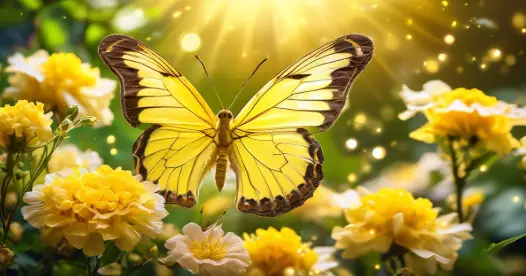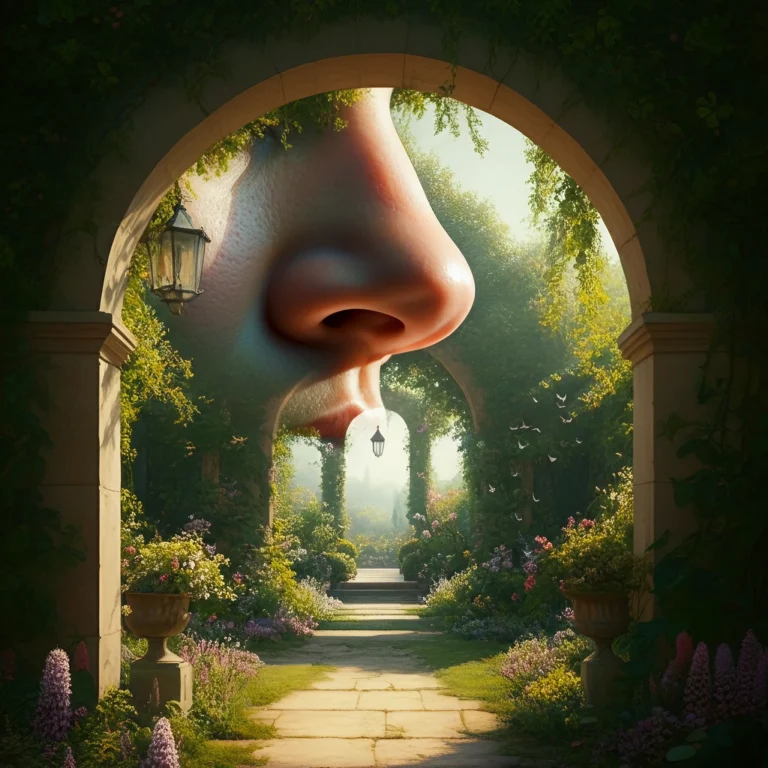Black rabbit meaning often ties to themes of mystery, luck, and change in stories and beliefs. Various traditions associate black rabbits with secret knowledge, new beginnings, or exceptional occurrences.
Some view them as good omens, while others associate them with the occult. Black rabbits leapt off in illustrations and stories, underscoring their powerful presence in both traditional and contemporary narratives.
The subsequent passages reveal more of these meanings.
Core Symbolism

Black rabbits have long been symbolically significant worldwide. Folks perceive them as more than mere beasts — they symbolize the unconscious, individuation, and the unexplored. Some tribes viewed rabbits as representations of fertility, wisdom and spiritual power.
Black rabbits, specifically, are known for their symbolism of magic, transformation, and the mysteries of life. Their association with the moon and folklore imbues them with an extra level of significance.
1. Shadow Self
The black rabbit frequently symbolizes the shadow self, the aspect of ourselves that contains concealed anxieties or suppressed emotions. In Celtic tales, black rabbits connect to magic and the goddess Eostre, reminding us that journeying into our inner shadows is a journey towards expansion.
By confronting these terrors, individuals can discover more about themselves. This introspection isn’t always easy, but it can create real transformation.
The moon, so associated with rabbits in Chinese and Japanese folklore, is associated with instinct and emotional intelligence. Take the ‘moon rabbit’ in Japanese folklore, for instance, which resides on the moon alongside the goddess Tsukuyomi, exhibiting how confronting the mysteries can lead us through hardship.
2. Inner Intuition
For a lot of people, the black rabbit represents the idea of trusting your gut. This concept is grounded in ancient folklore—rabbits are associated with the moon in China, Japan and Celtic territories, which inevitably tie back to inner intuition.
Individuals can employ the symbol of the black rabbit as a prompt to touch base with their own emotions before deciding. By noticing little omens or dreams, one can receive guidance that reason cannot give.
3. Facing Fears
The black rabbit can serve as a symbol to confront your fears. For example, in certain Native American legends black rabbits are mischievous tricksters, illustrating that fear can be as much a provocation as it is a mentor.
By viewing these animals as a shove to get over doubt, individuals discover bravery to experiment. It’s not about fearlessness, its about leveraging fear for personal development.
The black rabbit’s trickster/guide function in folklore can assist us in reconsidering what hinders us and freeing us from well-worn ruts.
4. Personal Change
The black rabbit represents major transformation. Lots of tales depict these creatures as omens of new beginnings. They instruct that transformation is natural and can deliver fresh opportunity.
The key is adapting to new things. The black rabbit’s connections to change in Celtic legend and to fresh starts in Eostre’s narratives make it a potent symbol for all those seeking to bloom.
Utilize this concept as motivation.
5. Unseen Luck
Black rabbits are lucky, too, but usually in secret. Rabbit’s foot is a classic good luck charm, but black rabbits can signal stealth or unexpected blessings.
Remain open to serendipity in your everyday life. Others simply like the idea of the black rabbit because it allows them to view good things with greater clarity even when they’re not sure how things will turn out.
Cultural Tapestry

The black rabbit is full of significances among various cultures, influenced by myth, legend, and metaphysical contemplation. These layers create a cultural tapestry — a complex weave of customs, superstitions, and symbolism — where the rabbit symbolizes fertility, transformation or mysticism.
The black rabbit, in particular, demonstrates the intricate nature of cultural symbols — at times a companion, at others a caution.
| Culture/Region | Positive Meanings | Negative Meanings | Unique Significance |
|---|---|---|---|
| African | Protection, guidance | Omen in some tales | Helper in hardship |
| East Asian | Good luck, rebirth | Trickery in some stories | Linked to moon deities |
| European | Fertility, abundance | Harbinger of change | Mystery, transformation |
| Native American | Spirit guide, intuition | Messenger of death (rare) | Shape-shifter in legends |
Ancient Beliefs
| Civilization | Symbolism of Black Rabbit | Associated Deity/Figure | Context |
|---|---|---|---|
| Chinese | Moon, immortality | Moon Goddess Chang’e | Mid-Autumn legends |
| Egyptian | Afterlife, rebirth | Various underworld deities | Burial traditions |
| Celtic | Transformation, intuition | Earth Mother figures | Seasonal rites |
| African | Protection, guidance | Tribal spirits | Conflict, migration |
Black rabbits frequently link to the moon — particularly in East Asian myth where the rabbit presumably dwells on the moon, blending herbs for immortality. This ‘moon rabbit’ from Chinese mythology appears alongside Chang’e, the moon goddess, during the Mid-Autumn Festival lore. Additionally, the black rabbit totem symbolizes protection and courage, making it a powerful symbol in various cultures.
Early agrarian societies regarded the rabbit as a symbol of fertility and life cycles. Its midnight blue sheen distinguished it as a precious omen of rain or seasonal shift. In certain African cultures, a black bunny warned of impending hardship but assured a path through darkness, embodying the spiritual significance of these enigmatic creatures.
The black rabbit carries deep spiritual meanings, serving as a guide between realms. Ancient cultures viewed these creatures as emissaries traversing illumination and obscurity with grace, reflecting the rich tapestry of rabbit dream scenarios and their connection to the spiritual world.
Folklore & Myth
Folklore frequently portrays the black rabbit as a cunning trickster, besting hunters and competitors. Tales from Europe and Asia depict the black rabbit fleeing peril with speed and cunning, imparting to their audience the lesson of being quick on your feet.
Black rabbits show up in cautionary tales in many cultures. These tales utilize the rabbit’s behavior to illustrate the perils of avarice or the benefits of prudence, thus serving as a vessel for transmitting morals.
As cultural tapestries from Japan to Ireland recount black rabbits guiding lost wanderers to safety, and sometimes, deeper mystery. Their evolving purpose mirrors our ambivalent attitudes toward the unfamiliar.
Magic trails that black rabbit too in folklore. Others regard it as a shape-shifter, capable of traveling between worlds or bestowing good fortune if encountered at sunrise.
Modern Spirituality
- Used in meditation and visualization practices for grounding.
- Selected as a tattoo symbol for rebirth or transformation.
- Shows up in dream books as a symbol of intuition.
- Kept as a talisman for protection during life changes.
For so many, the black rabbit is considered a spirit animal that takes individuals through transformation. It represents instinct, aiding the lost soul confronted by difficult decisions or uncharted territory.
In contemporary metaphysical groups, black rabbits represent the duality of light and darkness, encouraging individuals to embrace both aspects of their being. Their portrait is employed to enhance imagination, ignite inspiration, and assist people believe their intuition.
Dream Encounters
Dreams about black bunnies are memorable for their powerful symbolism and striking visuals. Across cultures, the black rabbit totem can indicate fortune, insight, secret knowledge, and periods of transformation. How these rabbit dream scenarios play out—whether the rabbit is pursued, leads the dreamer, merely shows up, or activates alchemy—colors their significance in both individual and mystical dimensions.
The Chase
Being chased by a black rabbit in a dream is almost always indicative of a quest for understanding. This pursuit is often connected with drive, implying individual objectives barely within grasp. The chase can evoke intense emotions—thrill, nervousness, or even disappointment—paralleling real-world motivation and obstacles.
Others see this as a metaphor for persistence. The pursuit could represent the dreamer’s determination to confront a fear or address a problem, as in Hindu dream interpretations where the black rabbit is considered a call to wake up.
Other times, the pursuit can indicate a desire for plenty or a journey to find oneself, motifs found in numerous black rabbit folkloric traditions.
The Guide
In certain dreams, the black rabbit serves as a guide — guiding the dreamer through labyrinthine experiences. This guiding function is important in mysticism, where black rabbits are viewed as assistants on the path to self-discovery.
The rabbit could show up at a crossroads, pushing the dreamer in a new direction or cueing them to trust their intuition. Encounters like these are always wise.
The rabbit’s peaceful demeanor instills courage and a willingness to embrace transformation during times of transition. Viewed as a friend instead of an enigma, the black rabbit can assist the dreamer in embracing ambiguity and continuing on with resolve.
The Presence
Even encountering a black rabbit in one’s dream, without any pursuit or oracle dictation, can be potent. The rabbit’s presence alone could represent instinct or a flash of inspiration.
Most dreamers report feeling either calm or curious, even when the dream feels bizarre. In others, black rabbits are connected to icons of fertility, introducing the concepts of growth and new life.
Others interpret them as invitations for self-examination, indicating that it’s time to stop and turn inward. The feelings of these dreams tend to be soft, but the recall can persist for a long time waking.
The Transformation
Black rabbit dreams can ignite true transformation. These dreams tend to be the beginning of growth–indicating a change in the dreamer’s mindset.
Others associate them with transformation or good luck, while others recognize them as omens to confront hidden realities. These dreams might encourage the dreamer to take minor real-life steps—confronting fears, experimenting, or releasing.
The concept of dreams beginning transformation is prevalent in spiritual teachings and folklore, including tales such as Japan’s Tsuki no Usagi, where the rabbit represents internal power and regeneration.
Beyond Superstition

Black rabbits, often viewed as enigmatic creatures, tend to be associated with legends, fortune or misfortune, and ancient lore. Upon closer examination, their significance extends deeper than what our stories recount, making the black rabbit a powerful symbol in mythology and spiritual enlightenment.
Psychological Lens
In dreams, a black rabbit can represent suppressed anxieties or desires which individuals fail to confront when awake. Black can allude to what’s secret or inward. Therefore, if you dream about a black rabbit it usually indicates your mind is processing some profound anxiety or desire for transformation.
For instance, a black rabbit in a dream can sometimes indicate a need to trust your own decision making or confront your fears. A black rabbit can uncover the instinctual part of ourselves – such as reflexes or intuition.
In psychology, rabbits—particularly black ones—can symbolize the aspects of the psyche that keep secrets or are molded by history. By considering what black rabbits signify when they show up in life or dreams, we discover more about what we conceal from ourselves or desire.
Archetypal Role
Black rabbits, often referred to as black bunny symbols, embody duality, representing both fear and hope in a single form. In numerous legends, they symbolize the border between the living and the dead, transformation and stasis, and even fortune and misfortune. This dual function assists individuals in interpreting their personal narratives, providing a framework for discussing the ineffable.
They even appear in common tales, such as in Richard Adams’ Watership Down or Lewis Carroll’s Alice’s Adventures in Wonderland, where the black rabbit dream signifies transition, absence, or the great beyond. These popular stories inform our cultural imagination regarding what black rabbits symbolize in a broader universe.
The black rabbit’s role in myths—like the Jade Rabbit in Chinese lore, or the trickster in Native American tales—reveals that these enigmatic creatures have significance in the collective psyche. By employing black rabbits in stories, writers and artists access common concepts about transformation and danger.
Creative Muse
As an artist, writer, or maker, you might tap black rabbits to inspire new directions. The creature’s connection to magic and the mysterious, found in Celtic and Japanese mythology, inspires art. Black rabbits can signify danger and mischief, aiding innovators to leap beyond boundaries.
The silhouette of black rabbit jumping can inspire legends of fortune, tragedy or courageous transformation. In art, a black rabbit may appear as a whimsical image or as a symbol of profound meaning. Its connection to the moon and spiritual vision can inform new perspectives.
Your Personal Message

Black rabbits are special symbols, always evocative, often seen as powerful totem animals. Their place in myth and folklore has influenced how humans from different cultures view them, with many deriving profound symbolism from these enigmatic creatures, be it as harbingers of transformation or spirit animals.
Context Matters
Each black rabbit sighting or dream may hold different significance depending on the context. For example, observing a black bunny in a tranquil garden may evoke a sense of serenity, whereas a brief encounter on a bustling sidewalk may come across as enigmatic or pressing. Folks tend to interpret these rabbit dream scenarios through the lens of their own experiences and worldview.
Personal experiences, of course, always factor in. Someone who grew up with rabbits as tricksters might interpret the black rabbit totem as a warning to be vigilant. Others, brought up on tales of fecundity and resurrection, may associate a black rabbit’s call with expansion or inception.
Across cultures, rabbits have many faces: in Celtic myths, they link to the goddess Eostre, and in Japanese stories, the Moon Rabbit brings spiritual meaning. Chinese myths contribute an additional complexity, with the black rabbit connected to the Jade Rabbit and the quest for immortality. These threads reveal how context—personal and cultural—colors every encounter.
Emotional Response
First blush impressions upon encountering a black rabbit—either in dreams or in waking life—can steer self-knowledge. Some sense peace, while others receive an urgency. These feelings provide hints as to what the moment signifies to everyone.
Emotional connections with black rabbits tend to intensify the message. Calmness might indicate preparedness, discomfort could indicate an area to monitor more closely. These responses make individuals reflect, why does seeing a black rabbit evoke such thoughts or emotions?
Emotions aren’t arbitrary; they provide a meaningful dimension. Or a feeling of wonder or intrigue could prompt one to pause and observe. Occasionally, these emotions serve as springboards for additional introspection or development.
Actionable Insight
Checklist for daily integration:
- Write down when and where you see black rabbits.
- Note your feelings and thoughts during each encounter.
- Let me know what life changes or goals you’re contemplating.
- Look for black rabbit myths or stories from other cultures for wider context.
Even black rabbits as focus motivators can help zero in on objectives or reinforce consciousness! These creatures remind us to be receptive to the quiet signs surrounding us. Black rabbits’ lessons spur growth, turning each meeting into an opportunity for learning.
The Rabbit Paradox

The rabbit paradox illuminates the weird treatment of black bunnies in both culture and nature. At the center of this paradox is how one animal can embody both calmness and strength, serving as a blessing and a caution, hope and dread, simultaneously. Black rabbits, in particular, remain a distinct emblem for this combination of qualities. They appear in numerous myths and folktales as meek creatures, yet their hue associates them with themes of mystery, transformation, or primal instinct. This duality is what makes black rabbits so relatable, yet elusive.
The paradox begins in the real world. The European rabbit, Oryctolagus cuniculus, originated from the Iberian Peninsula. Humans subsequently introduced them to other locations like the UK and Ireland. In some regions, these rabbits are considered pests, while in others, they are endangered. This divided perspective—plentiful yet vulnerable—demonstrates the strange position rabbits occupy in nature and in our perception of them, especially the black rabbit dream scenarios that often evoke deeper meanings.
Even when they flourish in certain fields and meadows, they can disappear from others, frequently due to climate change, fragmented habitats, or emerging dangers. Black rabbits take this paradox to the next level. Their dark fur distinguishes them from the typical grey or brown, so they loom large in both nature and myth. In various cultures, a black rabbit signifies more than a mere creature; it may be symbolic of the unseen, the uncharted, or an ounce of foresight.
It may be symbolic of the unseen, the uncharted or an ounce of foresight. They remain the tender, swift and cunning creatures all rabbits possess. Black rabbits demonstrate how a single being can be both tender yet tough, secure yet wild. The proliferation of rabbits across Europe contributes more complexity.
The Normans introduced them to the UK and Ireland in the 13th century, and ever since, their populations and distributions have waxed and waned with changing climates, ice ages and human intervention. Lees and Bell’s studies demonstrate how this lengthy tradition of motion and transformation has cultivated a network of connections between rabbits, humans and the earth.
The rabbit paradox isn’t just about math or habitat — it’s about how they weave into the grand narrative of existence, transformation, and mystery, revealing the intricate relationship between humans and these enigmatic creatures.
Final words on Black Rabbit Meaning
Black rabbits pop up in narratives and in dreams and in real life with actual gravitas. A lot of people consider them omens– some call luck, some mutter caution, others simply acknowledge transformation. Cultures stir together old tradition and fresh twists, so the significance changes with location and era.
In dreams, people see a black rabbit and arise pondering their own luck or fears. Some brush off ancient yarns, some dig for lodes. Everyone makes their own sense of the sight. Whether plain or layered, the black rabbit remains. Or have a tale or opinion about what a black rabbit symbolizes to you? Leave a comment and tell us how it jives with your reality.
Frequently Asked Questions
What does a black rabbit symbolize?
The black rabbit totem represents mystery, transformation, and the unknown, symbolizing secrets and spiritual significance in various cultures.
Are black rabbits considered good or bad luck?
Certain cultures interpret black rabbits, or black bunny totems, as symbols of protection or guidance, while others associate them with caution or warnings.
What does seeing a black rabbit in a dream mean?
Dreaming of a black bunny could imply confronting your apprehensions or accepting life’s transformations, often serving as a powerful symbol of self-development or untapped ability.
How is the black rabbit viewed in different cultures?
Various cultures associate black rabbits with different meanings, often viewing them as powerful symbols or totem animals representing magic and knowledge, or as spirit messengers.
Can a black rabbit have personal meaning for someone?
Yes, a black bunny can symbolize something special due to your unique situation.
Is there a scientific explanation behind black rabbit symbolism?
Symbolism, such as that of the black rabbit totem, is defined by cultural tales, not science. It holds meaning in terms of common cultural superstition and individual symbolism, rather than in a scientifically verifiable way.
What is the paradox of the black rabbit?
The crazy thing about the black bunny is that it symbolizes both fear and hope. This black rabbit totem illustrates that symbols are individualistic, reflecting personal interpretations.







